AARP Hearing Center


One
The Field
HERE IS WHAT happened one Monday in the month of September, in the last year of the last century. Matthew, Zoe, and Duncan Lang were on their way home from school. Usually they took the bus from the larger town, where they attended secondary school, to the smaller town, where they lived, but that morning their father had said he had an errand to run and would collect them. So they waited beside the school gates, and watched the bus depart. After fifteen minutes, with no sign of the familiar car, they began to walk along the road that led to their town. They each wore a version of the school uniform: a white shirt, black trousers, and a black pullover. Expecting their father to appear at any moment, they walked fast, making it a game to see how far they could get before he pulled up beside them. They left the last houses behind. Hawthorn hedges and an occasional ash tree hid the fields that bordered the road. Through one gate they saw a herd of cows; through another, rows of barley. The afternoon was warm and still; only a few leaves fringed with brown hinted at autumn. Gnats hung in listless clouds above the tarmac. Zoe was the one who spotted something through the hedge. She had a gift for finding things: birds’ nests, their mother’s calculator, a missing book, a secret.
“What’s that?” she demanded, stooping to peer through the tangled branches. The flash of red could have been poppies bordering the field, but the poppies had already lost their petals. Before her brothers could answer, she turned and ran back to the gate they had just passed.
Matthew and Duncan watched her go. Zoe brought her knees high and pumped her arms. Last sports day she had won the quarter mile by almost three seconds. As she reached the gate, Duncan, without a word, took off after her. A car sped by, the smooth engine noise undercut by a harsh rattle. Matthew looked at the sky, mostly blue with a fortress of cumulus clouds in the east, and gave up on being the responsible one who waited for their father. The two bags, his and Zoe’s, banged against the metal bars of the gate as he climbed over and jumped down onto the rutted ground. The field had recently been harvested, and circular bales of straw lay randomly across the dull gold stubble. In the middle of the field stood a magnificent oak tree in full leaf. He caught up with first Duncan, then Zoe.
From a distance it was still possible to believe that the boy was asleep, lying on the grassy border between hedge and stubble. “Christ,” whispered Zoe.
The closer they got to him, the slower they walked. None of them spoke. Glinting bluebottles and smaller flies circled the boy. His hair was dark, his skin very pale. He wore a deep blue shirt, a color Duncan would later call cobalt, black shorts, and what appeared to be long red socks. At the local private school, the younger boys wore bright red knee socks, and for the briefest instant, Zoe thought Oh, he’s in uniform. A few steps closer, and she grasped the nature of the red. His eyelids were pale with a delicate tracery of veins. Everything that happened, they all three later agreed, was only possible because of those closed lids.
His chest rose, fractionally, and fell, fractionally. With no one to tell them what to feel, they did not cry out, or exclaim.
Zoe tiptoed forward, knelt down at a cautious distance, and leaned over to touch his bare arm where it emerged below his shirtsleeve. His skin was reassuringly warm. He was a little older than her. Eighteen. Perhaps nineteen. “We need to get help,” she said.
But she was not going anywhere. She was gently stroking his bare arm.
Except for his clothes and his scarlet legs, Matthew thought, the boy could have been an illustration in a Victorian novel: The Weary Harvester. Rest after Toil. The Dreaming Poet. He told Duncan to go back to the road and stop a car. “Tell the driver someone’s hurt,” he said. “He needs an ambulance.”
Duncan had been staring at the boy, committing him detail by detail, color by color, to memory. Now, reluctantly, he acknowledged the inevitability of being the youngest. He ran back along the edge of the field, scrambled over the gate again, and stood by the side of the road. In a well-organized world this would have been the moment for their father to arrive, driving, as usual, a little too fast.
The first car, black, sleek, ignored his frantic waving. So did the second. The third car, baby blue, the antenna bent at an awkward angle, slowed. Duncan stepped into the road, ready to explain. The man behind the wheel—he too was wearing a white shirt—was staring at him through the dull windscreen. And then, just as the car seemed about to stop, it accelerated, swerved around him—he glimpsed the number plate and a dent in the rear bumper—and disappeared. It would have stopped for Zoe, he thought. Or even for Matthew. He shouldn’t have let them send him to do this. But he had, and the beautiful boy was depending on him. At the sound of another car approaching, he planted himself in the middle of the road.
For a few scary seconds the car hurtled toward him. When the driver braked, he bent down at the window. “We found a boy in the field.” He pointed behind him. “He’s hurt.”
“Hurt how?” The woman pushed up her sunglasses as if the emergency demanded naked sight. Her eyes were a color Duncan could only call colorless.
“I don’t know. My brother says he needs an ambulance.”
“Don’t move him. I’ll phone 999. Leave the gate of the field open so they’ll know which one.”
She did a U-turn in the gateway, and headed in the direction of the town.
Back in the field his sister was still stroking the boy’s arm, his brother kneeling on the other side of him, fanning away the flies with a blue school notebook. They did not speak as he approached; he sensed they had not spoken during his absence.
“A woman’s gone for help,” he said, and knelt beside Zoe. His shirt had pulled loose as he ran, and the hem grazed the grass. “What’s the matter with him? Did he fall?”
“Maybe,” Zoe said. While Duncan was summoning help, she had noticed that the boy’s shorts were torn in several places: two holes in one leg, one near the waist, one in the other leg. Last autumn her mother had lectured her and her friend Moira about how, at fifteen, they had to be careful. “Don’t walk around alone at night,” she had said. “Don’t accept lifts from strangers. If a grown-up starts behaving oddly, find an excuse to leave.”
“Oddly how?” Zoe had asked.
“Making remarks about your appearance, touching you.” Her mother waved her hand. “Making you feel weird.”
Alone, she and Moira had giggled away the warning, but now her mother’s words came back; she tried not to think about the torn fabric—what made the holes, what lay beneath. From beyond the hedge came the sounds of a car approaching, disappearing, then another. “Do we know him?” she asked.
“I don’t,” Matthew said. As he moved the notebook, the flies retreated with almost military precision and, with the same precision, returned. Everything was warm and frightening. The boy was alive, which meant he might die. He was not sure Zoe and Duncan understood that.
“Maybe he looks different?” Zoe persisted. “Perhaps we’ve seen him at the shops, or on the bus?”
Matthew was still shaking his head—that the boy’s life might have touched theirs only made the idea of his death more frightening—when Duncan spoke. If Zoe was the one who found things, their little brother was the one who noticed them: the different yellows of two egg yolks, the way a person’s lips twitched when they met him, the first snowdrops pushing up through the frosty grass, the curve of a dog’s eyebrows. Matthew had asked Zoe once if she thought Duncan was better at noticing things because he was adopted. No, she had said, because he’s Duncan.
Now Duncan said, “I’ve seen him before, but I’m not sure where.”
Looking at the boy, he too thought of a picture, a painting his art teacher had shown him of a wide-eyed, cream-colored bull climbing into the sky with a girl on his back. Zeus had courted Europa by breathing out a saffron crocus from his dark nostrils. Who could resist a flower born of such sweetness? Not Europa. She had clambered onto his back, thinking to ride him around the meadow, garland him with flowers, only to find the bull carrying her skyward toward unknown terror, or unknown bliss. Had something like that happened to the boy?
“If his eyes were open,” Zoe said, “I bet you’d remember.”
If his eyes were open, Matthew thought, we would not be kneeling here. He would be in pain, and we couldn’t bear it. How long had they been here? Ten minutes? Twenty? He glanced over his shoulder at the nearest bale. Last autumn he and his friend Benjamin had carried a ladder out to the field behind Benjamin’s house, climbed up onto a stack of bales, and shared a beer. It had been oddly satisfying, sitting on the prickly straw, watching the lights of the town appear. Now, still fanning the boy, he edged closer. His left knee landed on something soft: a spiraling strip, maybe eight inches long, of brownish apple peel. He tossed it in the direction of the oak tree.
“You’re going to be all right,” Zoe said.
The boy gave a small sigh. His lips moved. The sigh became a word.
Each of them caught it.
No more words followed.
Two swallows swooped past, skimming the air above their heads. Briefly Duncan imagined the scene as if he were riding not on a bull but on the back of one of the birds, looking down at the boy lying in the grass, his blue shirt and black shorts and red legs ending in black trainers, slightly dusty, pointing at the sky. And the three of them in their white shirts, kneeling beside him, keeping vigil. When he descended again, it was with a longing to memorize every detail of the boy. He had seldom had license to examine another person so closely. Years later he would remember him more vividly than men and women he had loved, friends he had adored.
His hair was shoulder length, wavy, the brown of soil after rain; his forehead was high; his nose straight with an almost invisible bump at the bridge; his nostrils, against his pale skin, were faintly pink; his lips were parted, the upper a little fuller; his ears, shell-like, lay close to his head; the left had a tiny dark hole in the lobe. A thin silver chain lay across the hollow between his collarbones. He wore a watch, the black leather strap faded and cracked. His hands were open, palms up, his fingers gently curved.
Duncan was still itemizing the boy when there was a commotion in the road: the sounds of a vehicle stopping, doors opening, voices, and then three men hurrying down the edge of the field, one carrying a stretcher.
***
NO ONE HAD MENTIONED THE children, and no provision had been made for them. One of the paramedics called “All right there?” over his shoulder as they hurried toward the gate with their burden. “Fine,” Matthew called back. By the time the three of them reached the gate, the ambulance was gone.
They half walked, half ran, the rest of the way home. Something enormous had happened. They hurried past the sign for their town, the primary school they had each attended, the church, the pub, and the corner shop, past the houses of their neighbors, past the blowsy yellow and white roses in their front garden and through their blue front door. As it closed behind them, their father, Hal, appeared from the kitchen, an apron around his waist, a dish towel dangling from one hand. He was a blacksmith or, as he sometimes joked, an artisanal metalworker, and usually got home earlier than their mother to make supper.
“Where on earth did you get to?” he said. “I waited at the school. Then the caretaker told me you were walking home. I didn’t see you on the road. Did you get a lift?” His blue eyes were more amused than annoyed, but as Zoe and Matthew took turns recounting what had happened, they darkened. “Wait a minute,” he interrupted. “This boy, he’d been taken ill? He’d had an accident?”
Zoe described the holes in the boy’s shorts, the blood on his legs.
“I think someone stabbed him,” Matthew offered.
“Stabbed him?” Duncan said. It hadn’t occurred to him to wonder how the boy came to be lying there, but Matthew must be right. Someone had made the blood spill down his legs.
“Did anyone phone the police?” Their father was looking at each of them in turn as if, collectively, they might be to blame.
Duncan said he hadn’t mentioned the police to the woman in the car. “Was I meant to?”
Still holding the dish towel, their father said he thought he’d give the station in Oxford a call, and stepped over to the phone.
***
AT SUPPER, THE FIVE OF them sitting around their round table, their mother, Betsy, made them tell the story again. “Thank goodness you found him,” she said. “Who knows what might have happened.”
“He’d have died,” said Zoe severely. “We have five or six quarts of blood in our bodies. If we lose five or six pints, we die.” She glared at her plate, the meek fish pie and green beans. Then, turning to her brothers, she said, “Do you think the person who attacked him was still there? Do you think he saw us?”


























































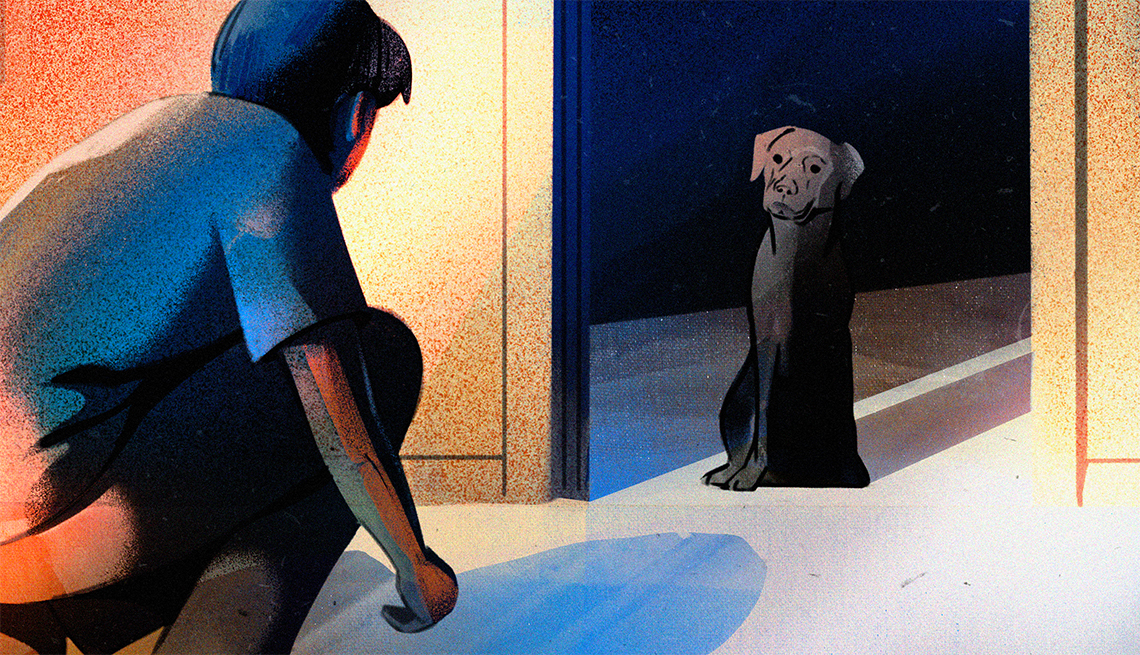
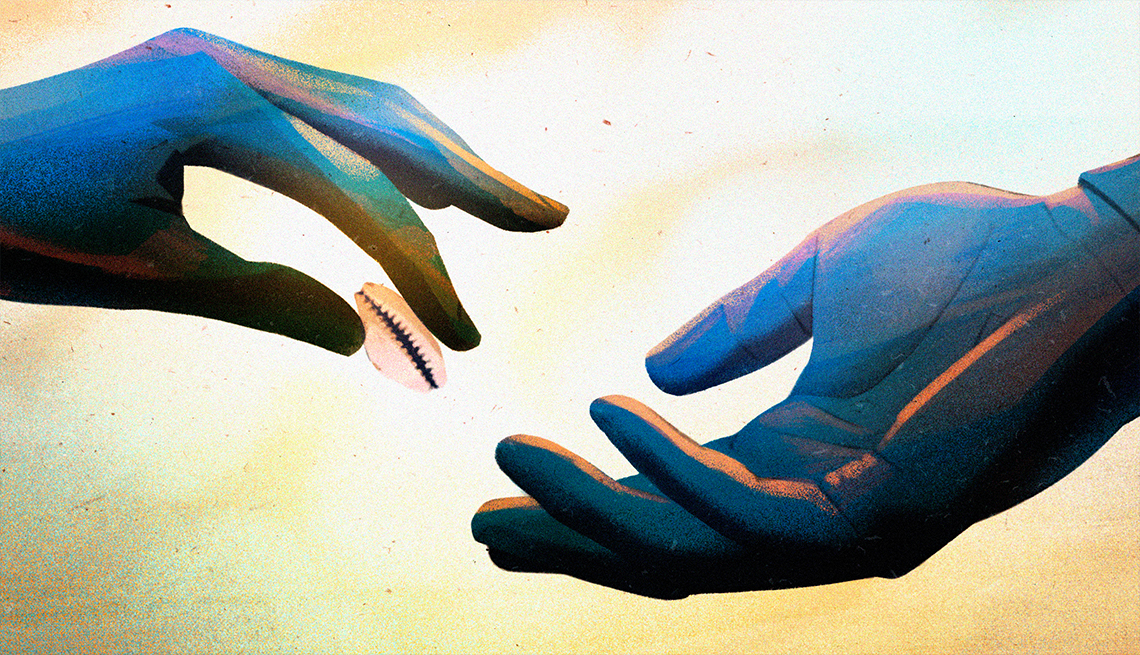
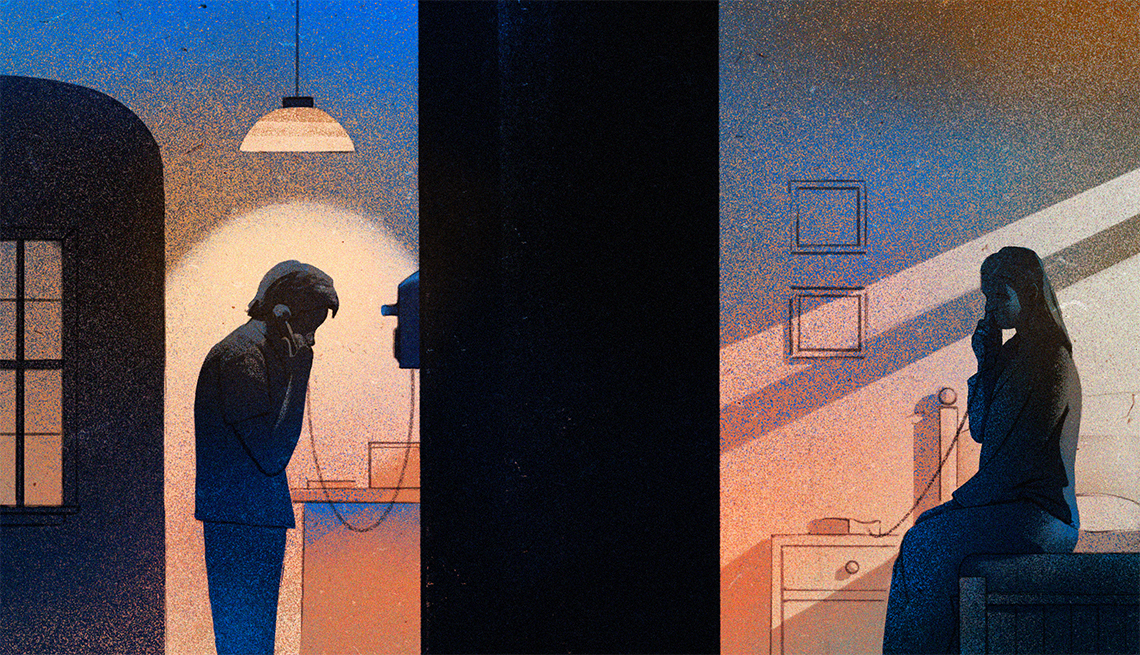
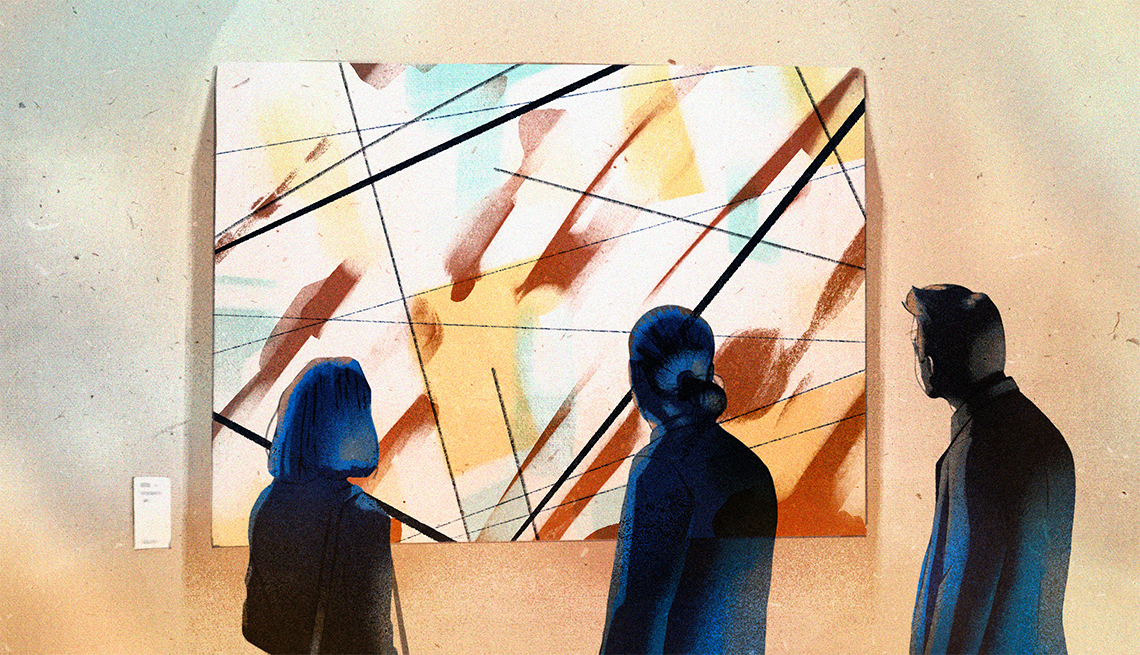
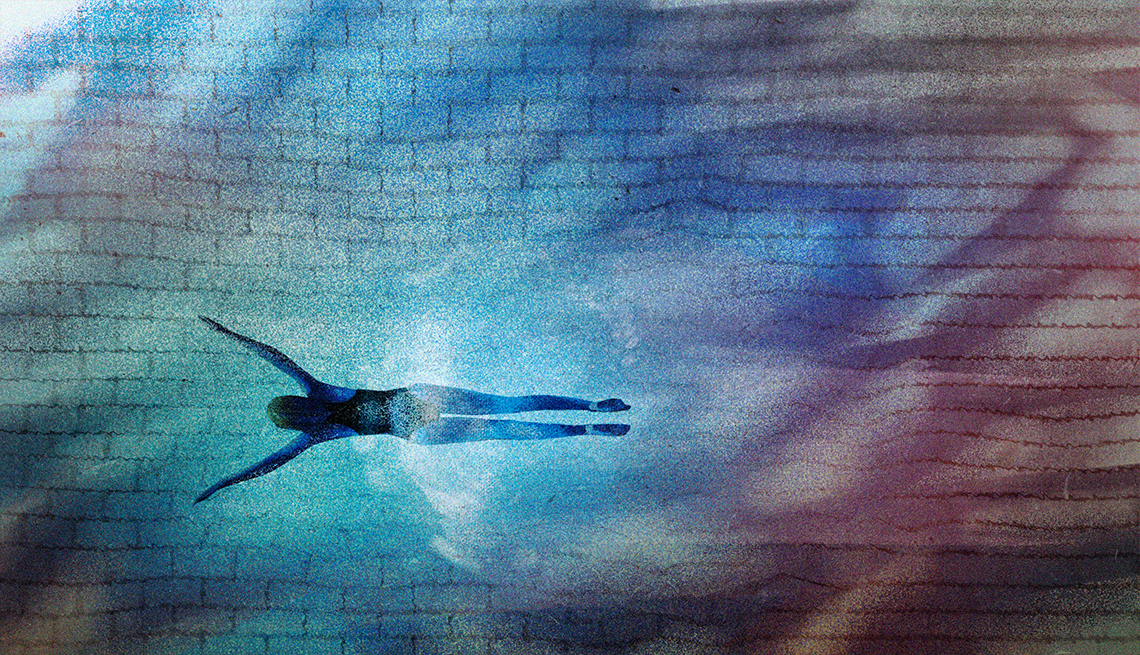
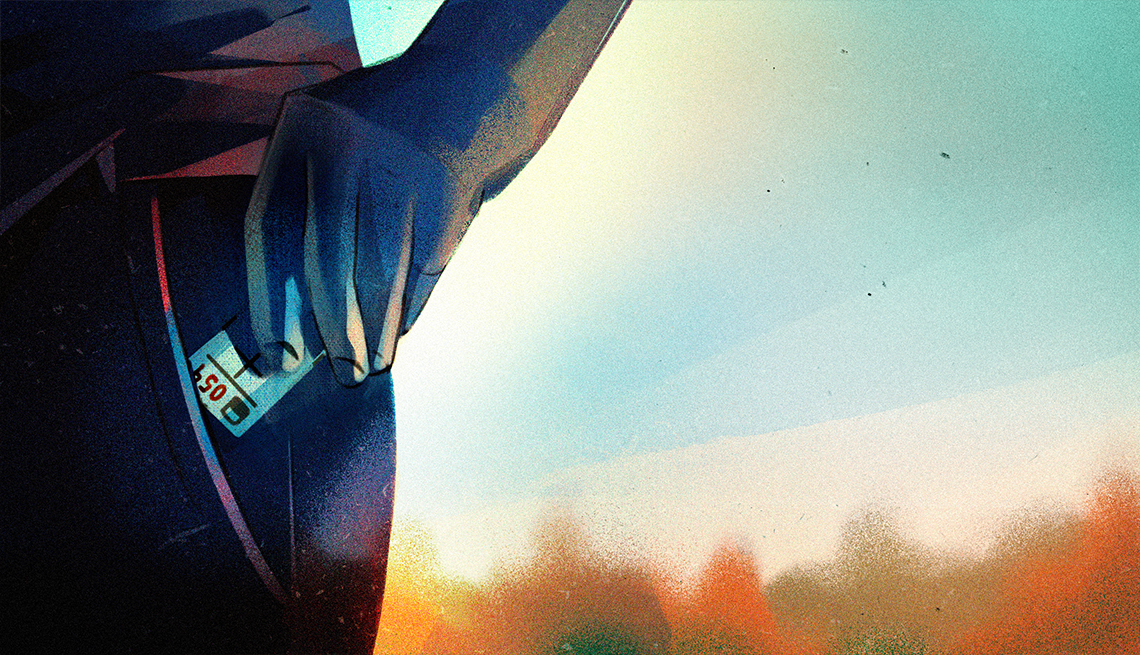

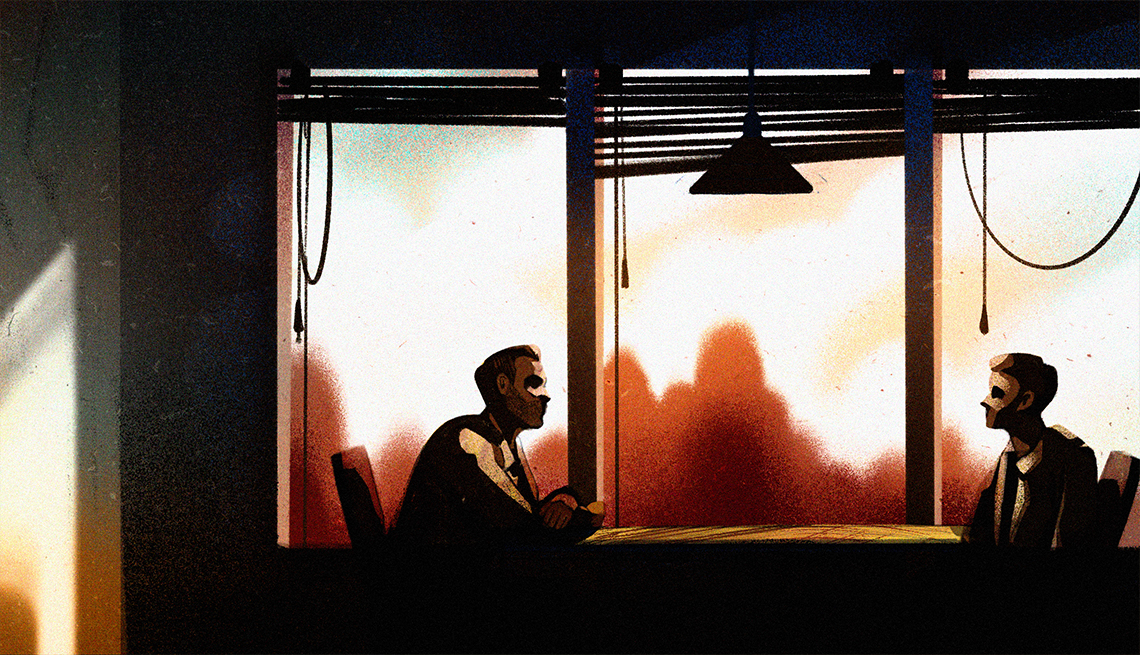
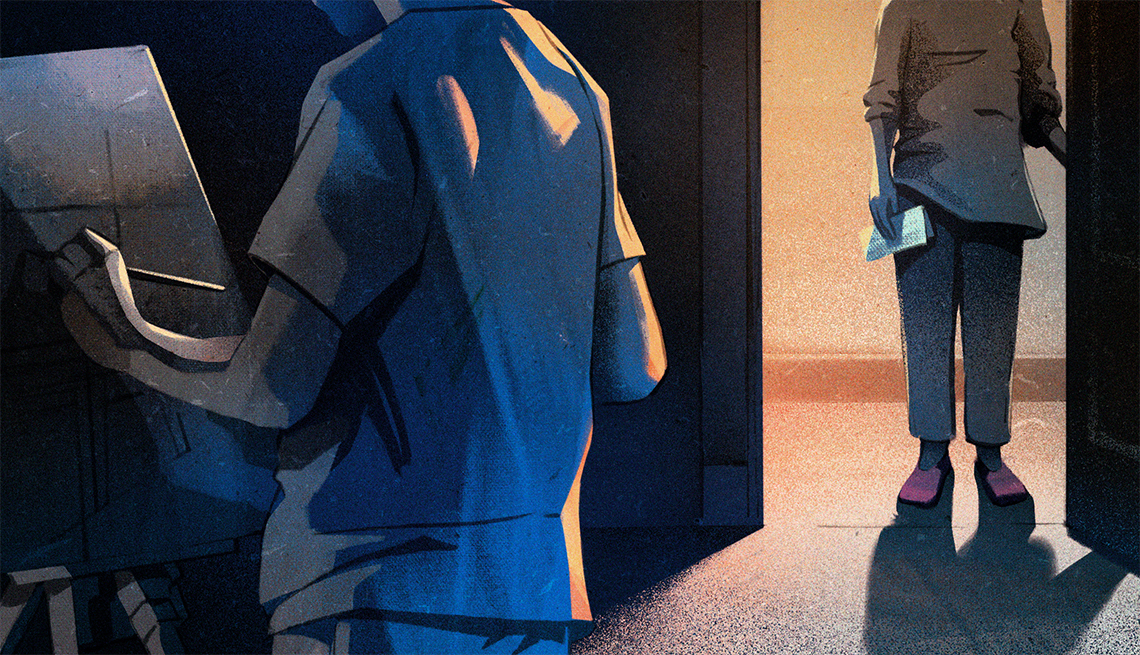
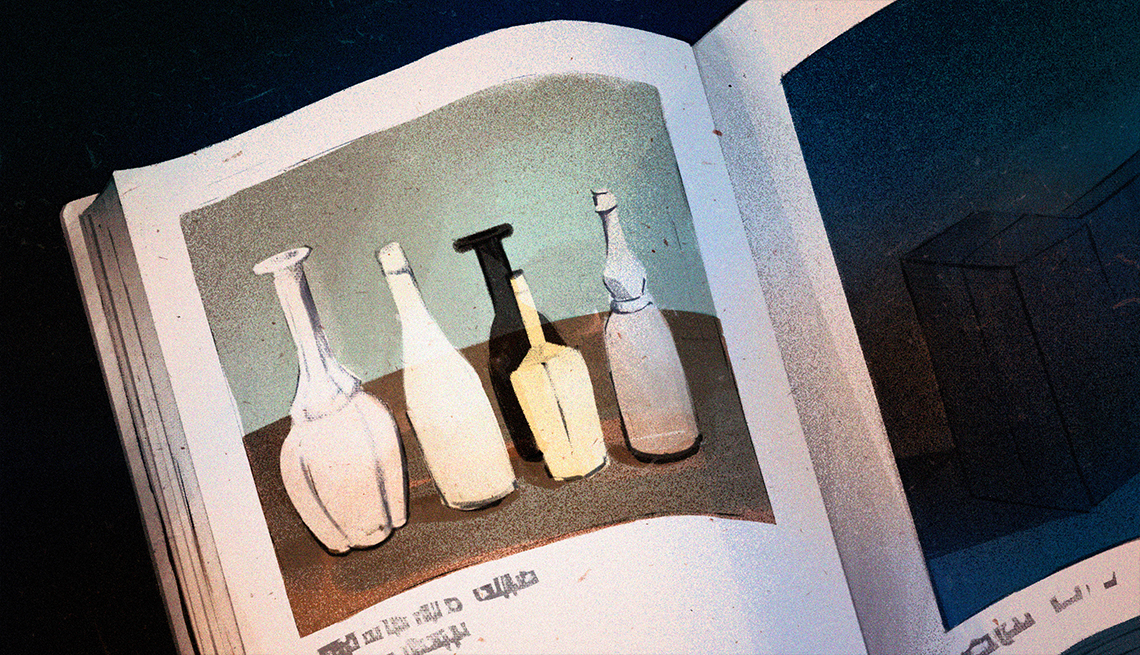
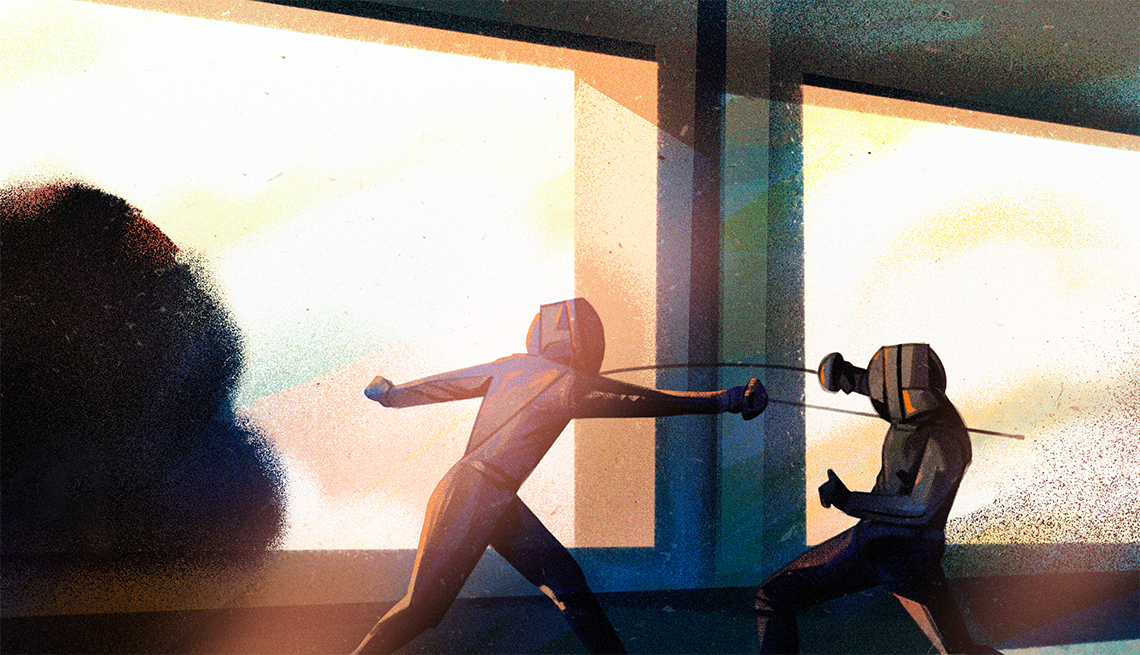
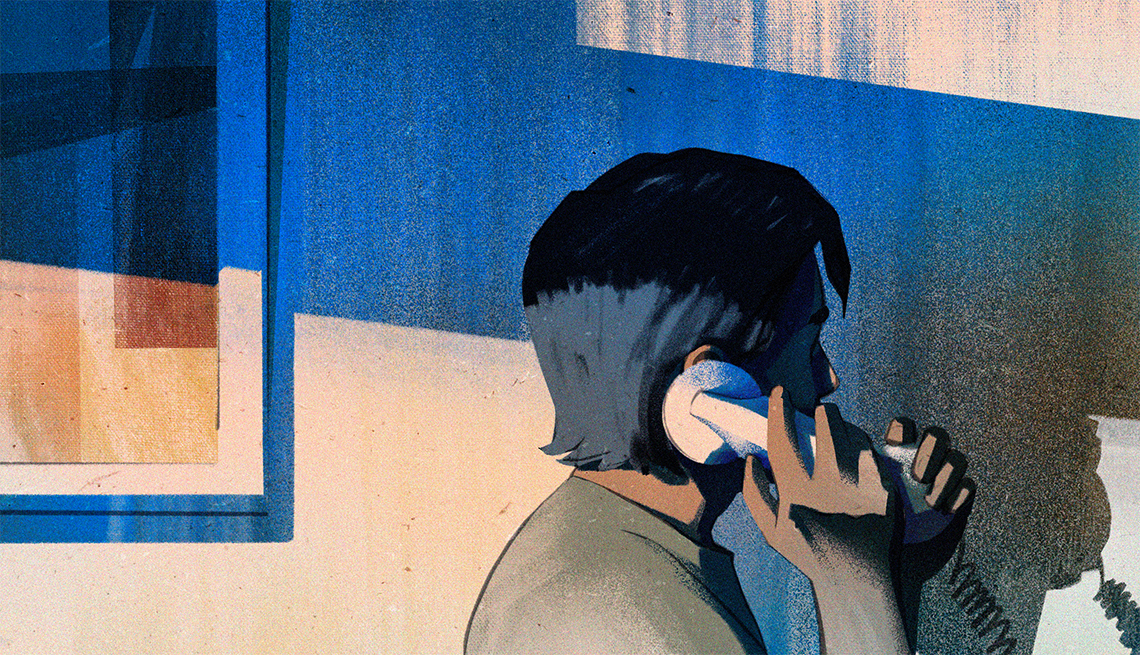
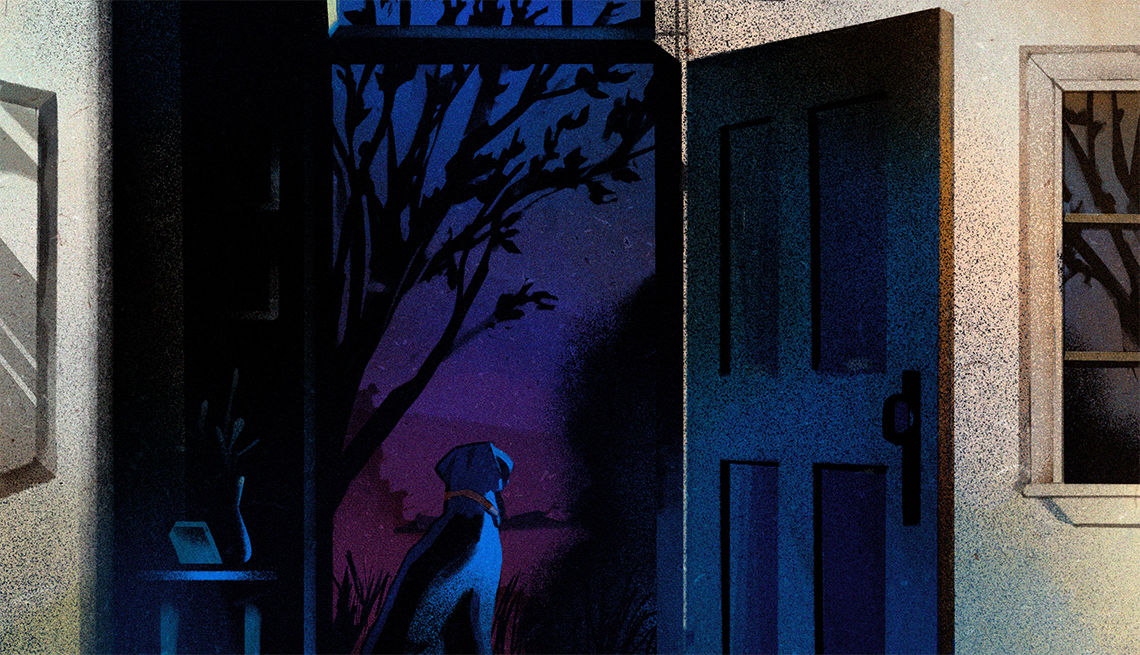
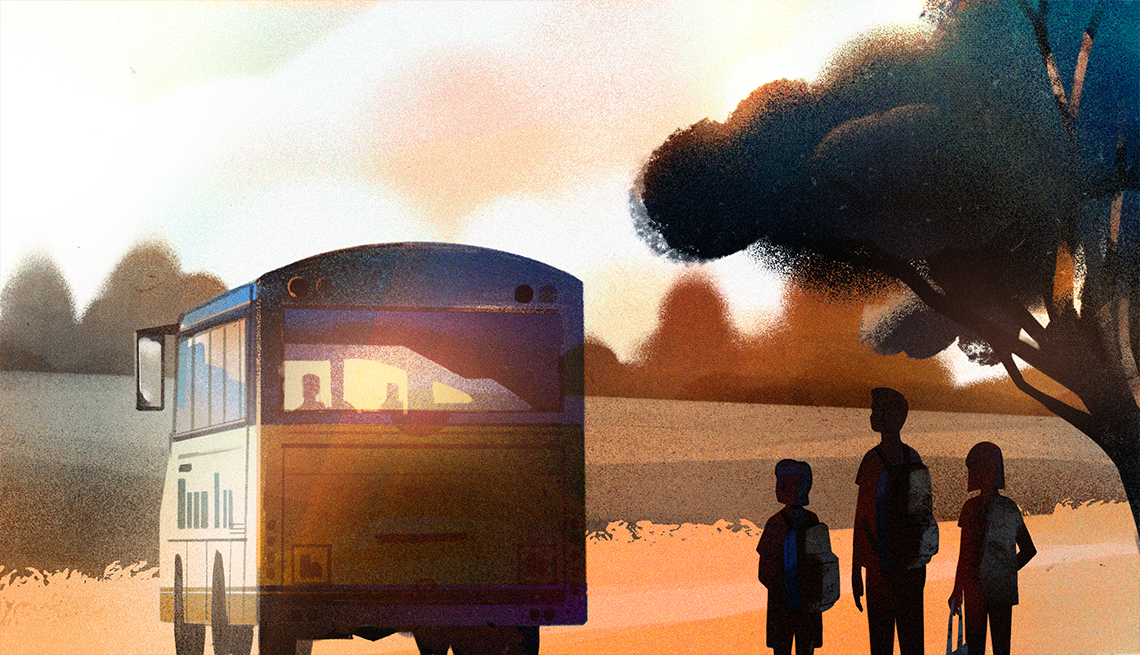
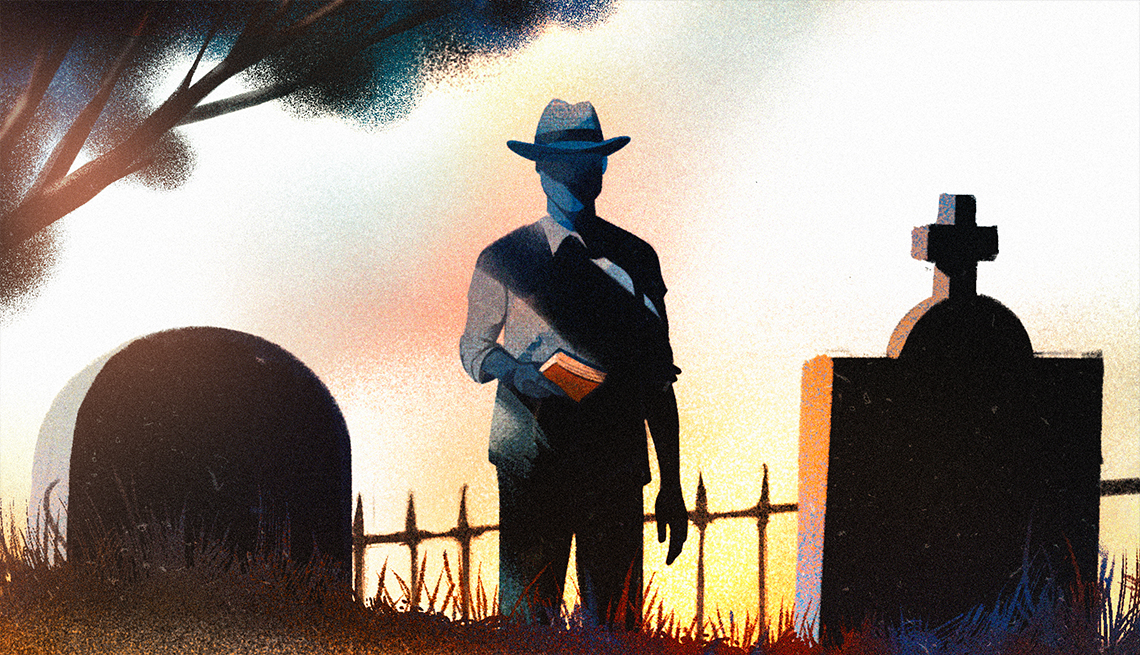
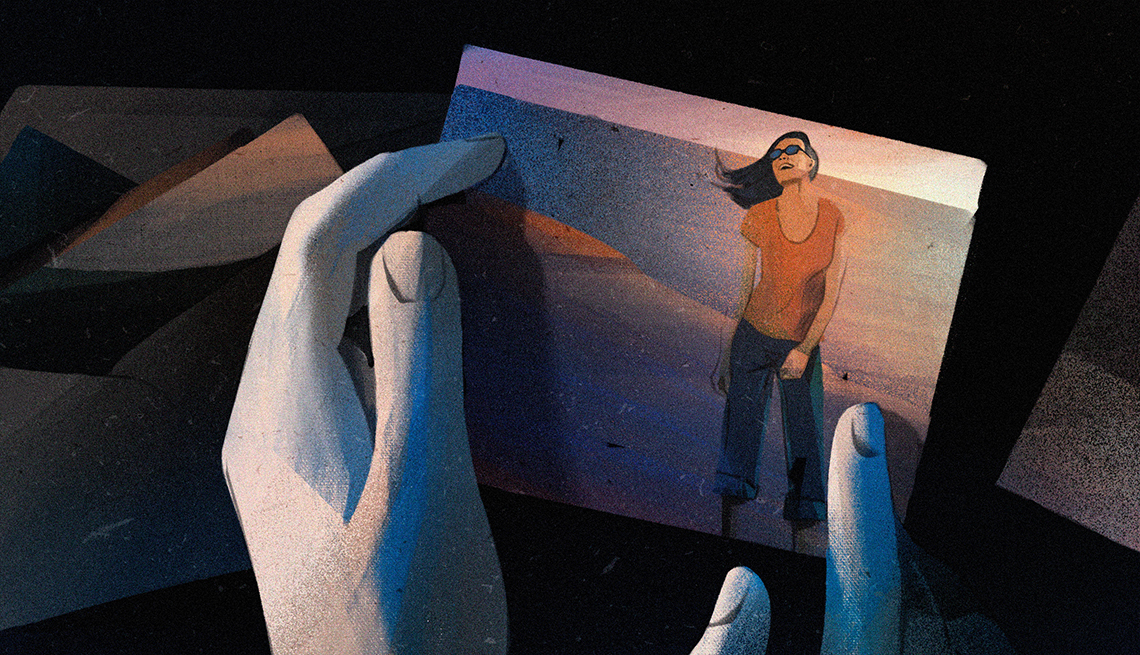
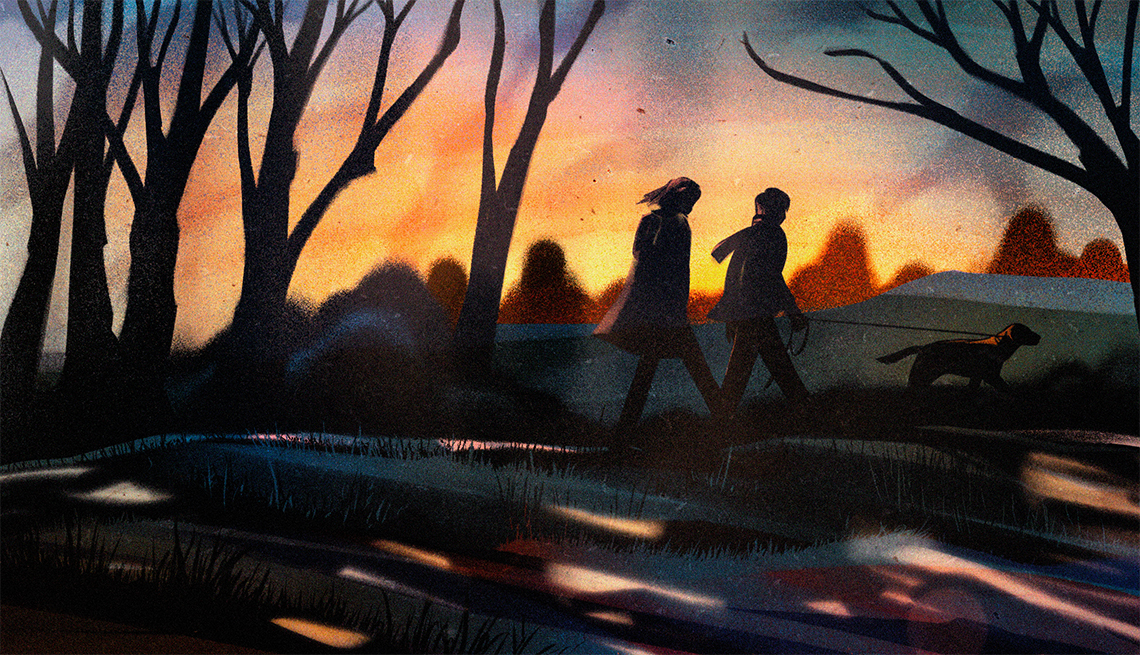
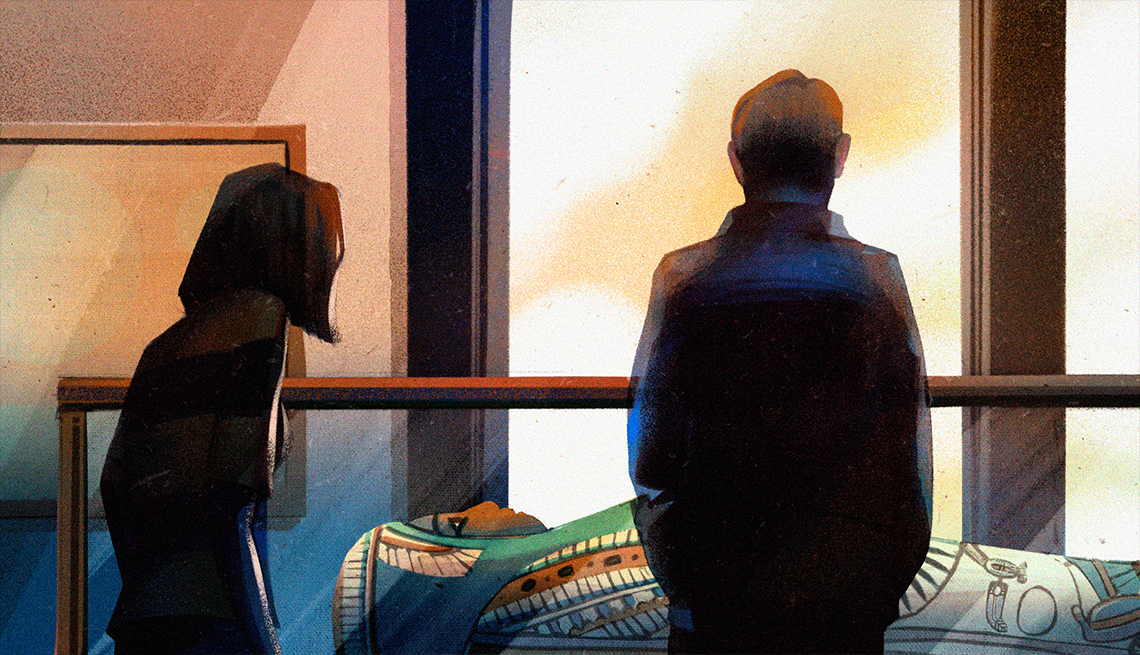
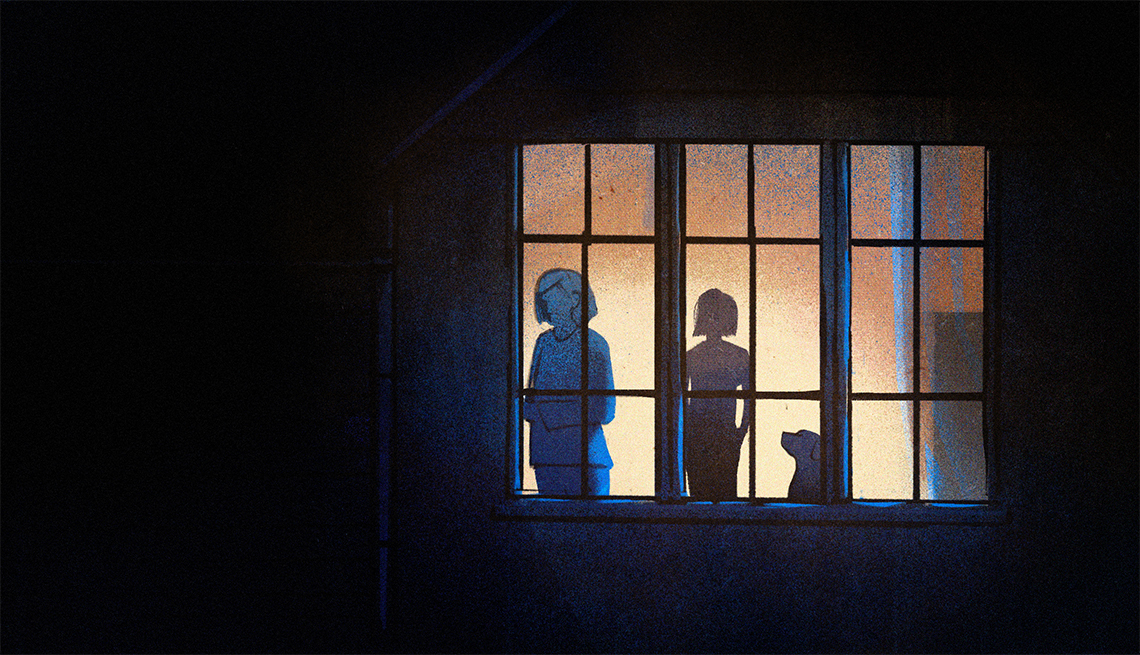
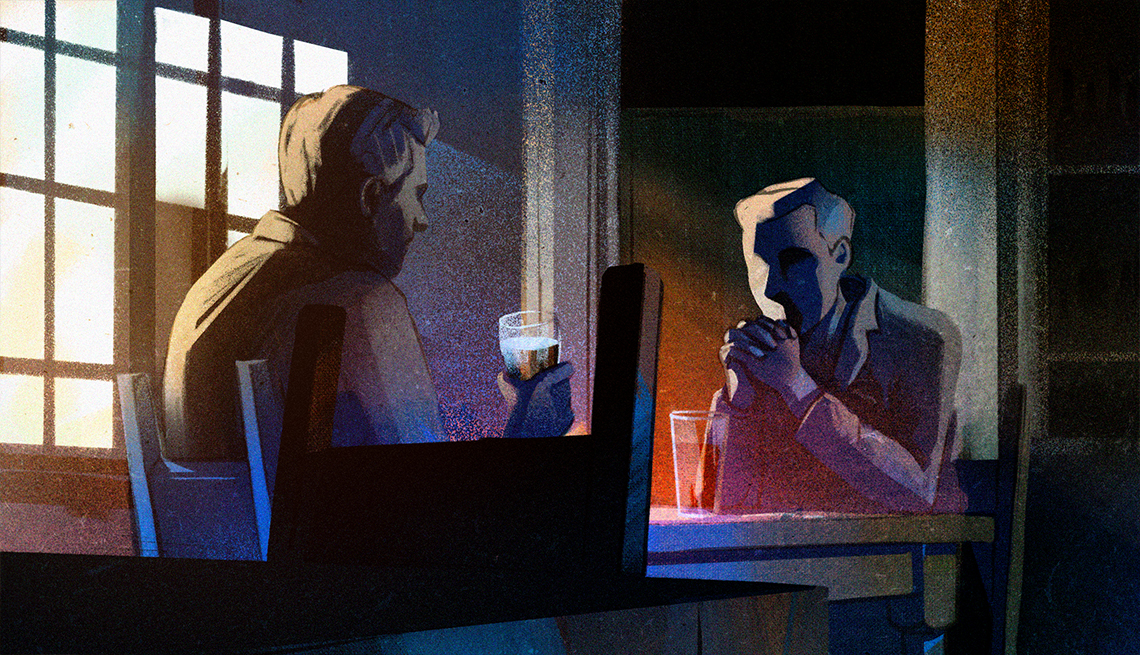



More From AARP
Free Books Online for Your Reading Pleasure
Gripping mysteries and other novels by popular authors available in their entirety for AARP members